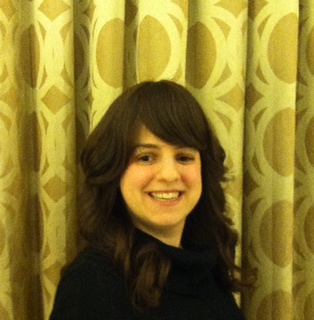Psyched to Be Here
LAS adjunct professor Perella Perlstein has a mission to pay her education forward

People helping people helping people: It may as well be Perella Perlstein’s mantra. After all, it’s implicitly guided her studies and career up to this point. The 2006 Lander College of Arts & Sciences (LAS) Psychology grad and current Adjunct Professor in Psychology at Touro—she also acquired a Masters in School Psychology and Doctor of Psychology in between—has been pursuing a greater knowledge of how anxious and personality disorders develop and get successfully treated. She’s also long yearned to work in academia, molding like-minded future peers’ sophistication about our scientific minds.
“I’ve always wanted to teach,” she acknowledges. “I didn’t know if it would be peripheral or centered in terms of my career path, but it was always my dream. I didn’t want to teach elementary or high school-age; I wanted to teach a subject I love at the college level.”
What really solidified Perlstein’s certainty about engaging psychology from a professorial angle was the chemistry she developed with mentors as an undergrad at Touro. She points to key figures during that time like Drs. Melech Press and David Steinman, who still oversee psychology courses at the college. “Those were the ones who really influenced me to want to be in a classroom,” she says, while elaborating on how important it is for any young enrollee to foster those connections. “It’s very important in terms of professional and vocational development, and also just their knowledge base. Sometimes, my students don’t know what they’re going for, especially in their first year. Part of the process of learning what you want is to speak to professionals who are in the field and counseled other students who have had similar questions. The only way you can do that is to really foster a relationship with the faculty.”
Perlstein, who also works part-time at the Interboro Developmental and Consultation Center outpatient clinic in Brooklyn, is now in the unique position of transitioning from mentee to mentor. Fortunately, her experience in and out of the academic environment—not to mention on both sides of the professor’s desk—has imbued her with tremendous empathy. “On a practical level, I find my experience with the clinic helps add color to the lectures,” she says. “When we’re discussing OCD, we can actually discuss a case; obviously, I’d distort the facts to preserve confidentiality, but it adds a lot to the discussion. And [it helps] in terms of just dealing with the things that come up when you interact with students, and dealing with whatever issues might come up in and outside of the classroom. There are students who come over to me for advice, and I’ve directed students to different colleagues. I think the three essential elements of therapy apply in a classroom too: You need to be genuine, you need to be empathic, and you need to have positive regard for your students.”
Naturally, that commitment is dependent on a mutual effort. Perlstein is accessible to all her students, but keeps a special eye out for ambitious pupils who take the work seriously and demonstrate the kind of motivated yen to excel that helped her become accomplished. “It can be very tricky,” she explains. “Very often I’ll teach evening courses, so these are students who work full-time or part-time and then take classes, and you can pretty much tell if they’re an employee first and a student second. So part of it is, “Do you take my class seriously?” That’s evidenced in the obvious, such as actually showing up to class. And very often, they’ll come over at the end of class and continue the thread of a conversation that had been started. There are also students who are interested in research projects, and there are students [with whom] I love the inquisitiveness and the questions and the wanting to know and internalize the course material and take it further.”
Right now, Perlstein doesn’t know exactly how she’ll take her own experiences further. She admits to an unceasing passion for academia, while recognizing the advantages of working directly with patients at clinics and in private practice. Whatever the end result, Perlstein is driven to keep refining her awareness of our complex neurology and passing that education onto others. “I didn’t realize I’d love teaching as much as I did,” she says. “But I realize now that I love the research and academic aspect. I’ve always wanted to work with people, so I’m glad I’m where I’m at.”

